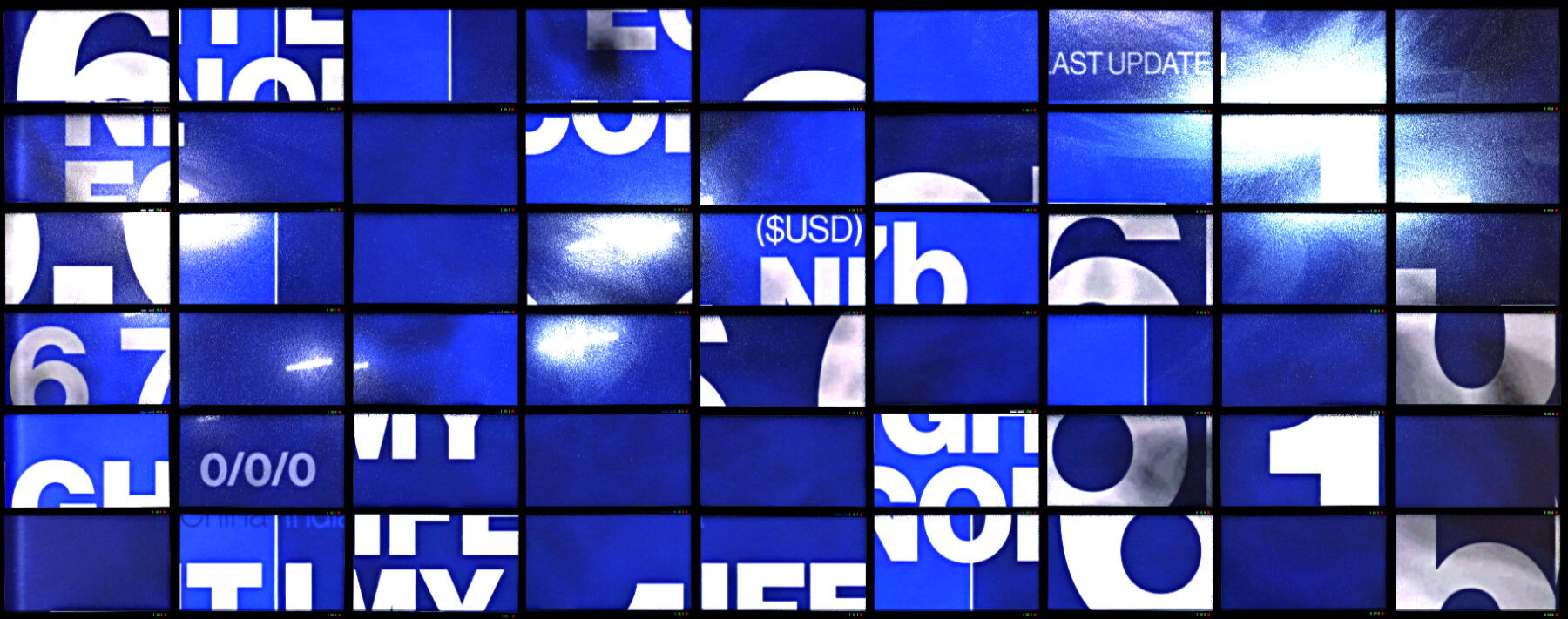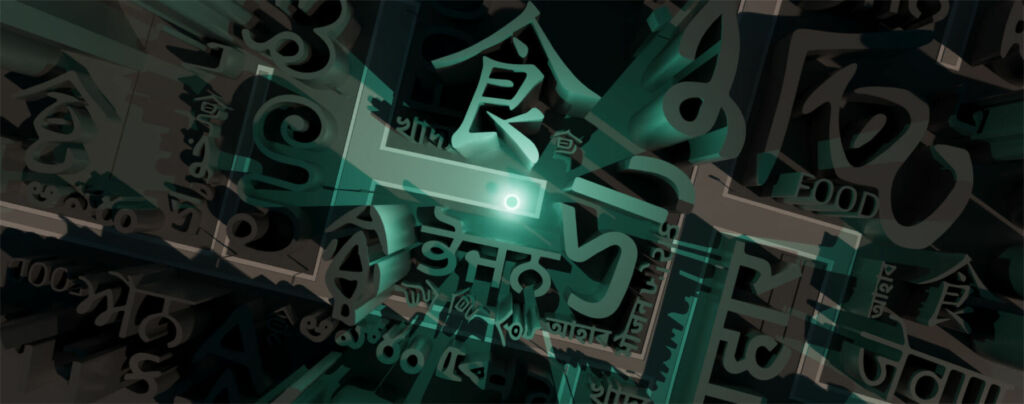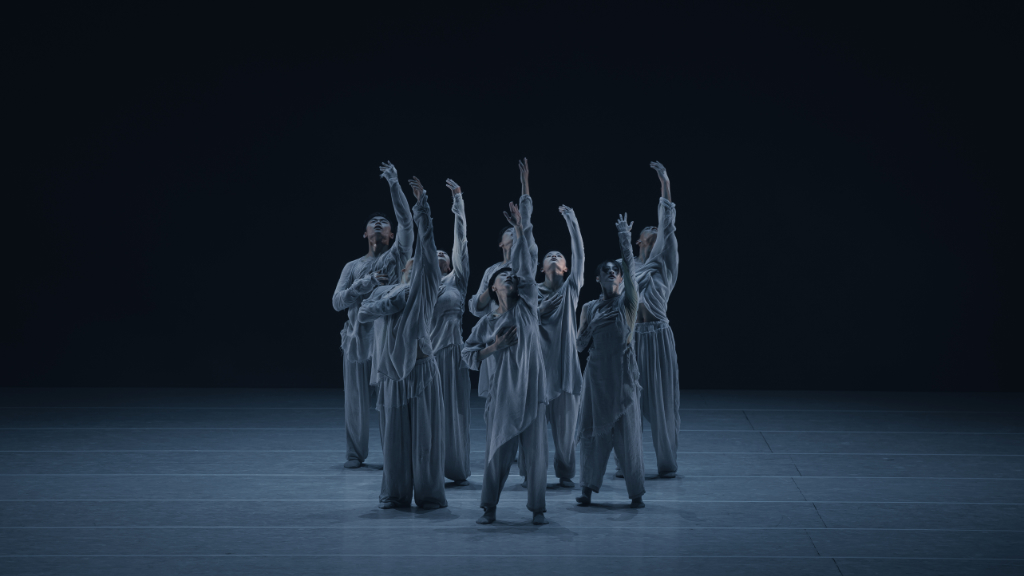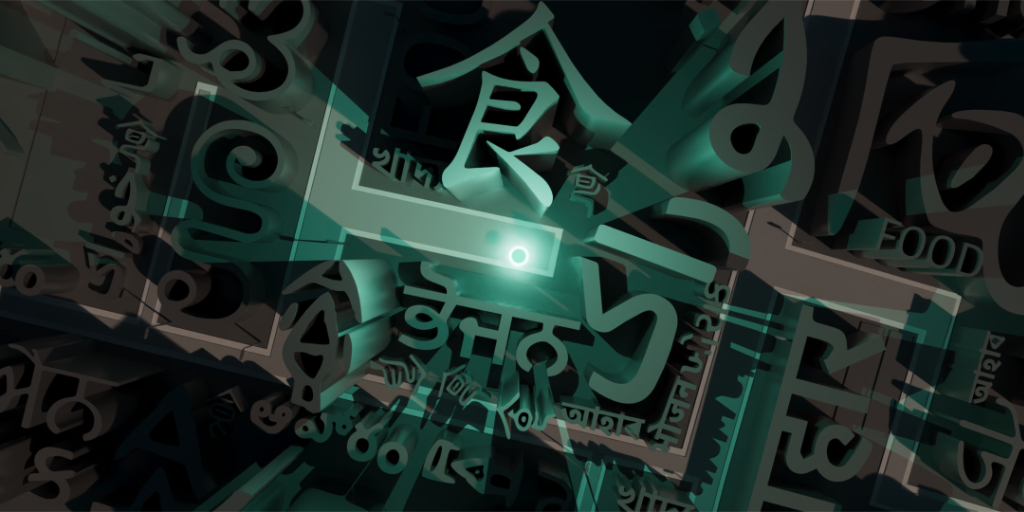Interview by Juliette Wallace

Art is connected with identity. An expression of yourself or your surroundings through creative means. Data, on the other hand, has historically been considered less personal, more niche; to be handled and appraised by small groups in the cubicles of large companies where numbers are interpreted with the aim of supplying to a gap in the market. With the dawn of Big Data and the now universal application of algorithms, statistics are no longer an abstract concept, far removed from the everyday person. They have become, instead, something that we opt into everyday, multiple times a day.
Our tastes, our discoveries, our concepts of ourselves are all shaped by data which, in turn, shapes the world. So what does this mean and where does art stand in all of this? The Accountants, presented by Factory International, is a high-tech, multimedia and multi-layered performance dealing with globalisation, identity and cultural expectations. Through dance, voiceover, video and live statistical analysis, The Accountants poses the question of what it means to be individuals in a world that depends on turning us into numbers. [T]he show explores cultural expectations, career choices and communication through technology, but its central question is simple: how, when navigating all of these things, do you find your own path in life? [1].
In its world premiere* on 4 May at Aviva Studios (Manchester), Keith Khan’s The Accountants will demonstrate the power of collaboration and cross-cultural mingling in the context of globalisation and Big Data. The event has been contributed to by a multitude of artists and creatives including international dance icons, Terence Lewis and Xie Xin, actors Josh Hart and Shobna Gulati and ARIAS-nominated sound artist, Somatic.
The fundamental visual/digital element of the performance has been conceptualised by the Manchester-based artist’s studio, idontloveyouanymore. In their role in this work, idontloveyouanymore, made up of artists Anna West and Davi Callanan supply the audience with a key, intimate view of themselves and their fellow audience members in the realm of the performance.
iIdontloveyouanymore’s video work for The Accountants is set to be bold and, quite possibly, challenging. The content of the images, to be shown on three large screens behind the performers, are driven by data, both live data from the audience, and secondary data from various world data sources. In this way, sections determined by the night’s audience will produce a different filmic result, reflective of the viewers in attendance. As the artists themselves put it, …you (as an audience member) get a feeling of direct influence on the show, and of being complicit in the world of data created before you [2].
In an interview with the author, idontloveyouanymore explore the concept of personal paths, stereotypes, making video art from statistics, working with live performers and the beauty – or horror – of data. Through applying social realities to art, whether ugly or pretty, Anna West and Davi Callanan give us as an audience the opportunity to exist within their interpretation of our current world, leaving us simultaneously with a sense of unity and otherness, globality and disparity [3].
*Find tickets here.


Please introduce idontloveyouanymore to those who aren’t familiar with it.
Hello! We’re Anna and Davi, and we make work as idontloveyouanymore, an art and design studio based in Manchester, UK. We make mid to large-scale interactive artworks, as well as theatre and film. We produce a lot of our work but also work on collaborations like we’re doing right now.
Your works like to explore contemporary philosophy and technology. In your view, what is the relationship between the two?
We’d say the two are inextricably linked. We can’t talk about contemporary society without talking about technology. So many of the world’s billionaires, therefore controllers of the world’s wealth and controllers of politics, are owners of tech firms. Not only that, but technology has bled into our lives—it even bled into our deaths. We now have to consider the digital footprint we leave behind after dying. Technology has posed brand new philosophical questions about how we exist in the world.
You have contributed a large-scale animation for the upcoming performance work The Accountants, a multimedia theatre spectacle and collaborative piece led by Factory International that explores the action of finding one’s path in life in an ever-changing social and cultural landscape. How specifically do your images activate the other elements of this expansive work and assist in communicating this message?
There are three layers of narrative in The Accountants: three timelines that run in parallel, meeting, crossing, or mirroring from time to time. One of the narratives exists on two phone screens belonging to the two characters, Kash and Liam. Their screens are active throughout the show, and you witness the messages they send each other and even the messages they type but don’t send.
These screens give a presence and a digital embodiment to the voiceovers you hear. The dancers represent the accountants that live in Liam’s brain, constantly trying to take account of the world Liam is attempting to navigate. The big screen above the dancers tells a story of big data and contextualises the world that Liam and Kash live in. These elements work in conjunction, sometimes perfectly mirroring each other, other times juxtaposing or creating friction. We would say that more than video assists in communicating a message, all of the elements of the show work symbiotically, attempting to express the complexity of modern identity and reflecting the characters’ internal conflicts.
The Accountants puts the lives of two intergenerational, pluricultural British citizens in parallel. What do we learn from this comparative action, and how does it feed into what idontloveyouanymore calls the contemporary human experience?
Kash has Indian heritage, and Liam has Chinese heritage. As Liam travels around Asia, Kash is constantly, playfully, asking him who is winning between India and China, her heritage or his? This is reflected in the competing data we display, data ranging from population levels over time, highest grossing films, healthcare spending, and number of satellites in space.
This overwhelming vastness of data that Liam is grappling with is reflective of the contemporary human experience. The contemporary human experience is one of globality and disparity, where anything and everything is at our fingertips, where two seemingly completely conflicting ideologies coexist in the same breath. We exist in a time where some people can move across the world and become astronauts, and others can struggle to access education, where the net wealth of the wealthiest man in India or China eclipses the amount of stars in the night sky.
Liam is trying to make sense of what he should be doing with his life and who he is as a person in a world that is constantly trying to categorise him. What the audience is watching is his realisation that there isn’t one answer to these questions, there isn’t one path to follow, that a person can’t be solely defined by heritage, place of birth, gender, job role, or age, because we contain within us our extensive global histories and our endless future possibilities.
The Accountants highlight the role of cultural stereotypes. Considering that data feeds marketing and marketing feeds stereotypes, do we make stereotypes, or do stereotypes make us?
The granularity of data now used to market to us indicates that the ‘stereotypes’ that used to exist in marketing are being challenged every day. The categories used to define us are becoming more and more granular. The idea that we previously were containable in broad stereotypical categories has been dropped, even by marketing data itself, and the aim now is to completely define us with thousands of competing data points in a large matrix that is ‘uniquely you in data’.
So the fight now in terms of resisting the categorisation of ourselves in data terms is possibly less about broad buckets/categories and more about holding on to the idea that each human life cannot be contained within a set of anonymised data points tied to a unique identifier on a google/meta/apple ad server. This obviously accounts for how we are all subconsciously categorised daily by other human beings.
You will use real-life data captured from the audience on the night of the live performance. How do you translate these statistics into your video art?
The show directly references and plays with the idea of data collection and categorisation. The accountants (the performers) collect live data from the audience before the show. This is organised and re-organised within a spreadsheet live in the space in the pre-show and shown as statistics throughout the show.
As this happens live, you (as an audience member) feel a direct influence on the show and a sense of complicity in the world of data created before you. This activity, happening as you enter the building, sets the context for the work and invites the audience to imagine themselves through data before the show has even begun.
How does collaborating with so many big names from different art world spectrums on The Accountants feel?
It’s a real privilege to work with this creative team. There’s so much passion and dedication in the room; there’s a real commitment to the stories we’re telling, the meaning behind them, and a desire to do them justice. When you’re in a creative space together, you notice a lot of similarities between art forms. The cadences and rhythms you’re all following, as well as the areas in which you want to create patterns, repetitions, and links for the audiences – all of those things exist across the art forms. It’s just the tools that change.
You collaborate regularly, but it sometimes raises difficulties. What are the most common obstacles that come up through collaboration, and how does idontloveyouanymore overcome them?
The most common obstacle with collaboration is definitely the time it takes to develop a shared ‘language’ and a shared set of references. Often, you’ll collaborate with people because you’ve already established those things. There are some people you collaborate with regularly because, over the years, you’ve developed a shorthand, and it makes the process easier. You often have to start this process from the ground up with new collaborations. Sometimes, you might have shared references, and sometimes, you might not, but it’s important you develop an understanding and a good line of communication.
With collaboration, the positives outweigh the negatives. Although it can make a process slower, more voices in a process make the end product more considered, rigorous and layered. The result reflects differing life experiences and usually makes the time you’ve spent making the work more social and enjoyable.
Do you think new technology is making the search for identity and purpose – our “path” – easier or harder?
From personal experience, technology is making the search for identity easier. We’ve always had control and the ability to open ourselves up to new ways of life, and that’s never changed, but it seems to have become a lot easier. It’s become more accessible and easier during our lifetime to reach out to specific communities, search for specific events, and actively choose to widen your life. But to find our ‘path’, I don’t know if that was ever, or will ever, be easy. I think there are infinite paths. I don’t believe people have just one path.
What is the enemy of creativity?
Pre-decided outcomes.
You couldn’t live without…
Anna: Love. I know that sounds fluffy, but it’s what keeps things turning for me—not just romantic love but familial and platonic love. It gives everything meaning and colour and makes the difficult stuff a bit easier, so yeah, love.
Davi: Airpods.






